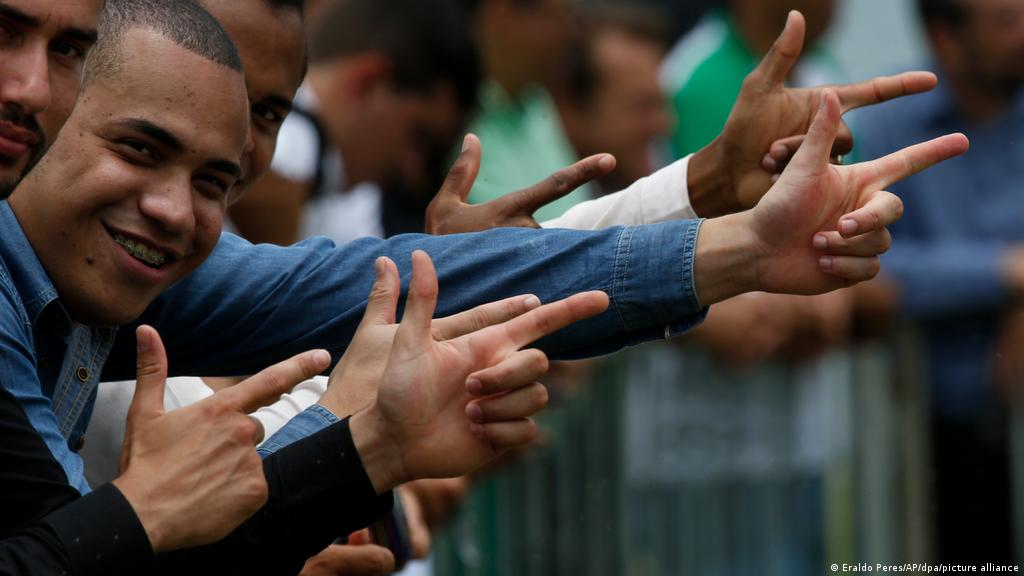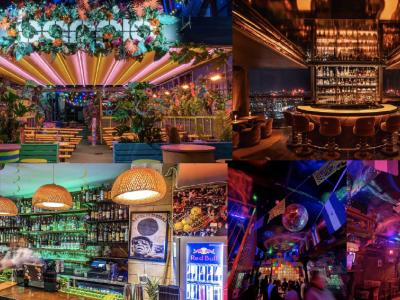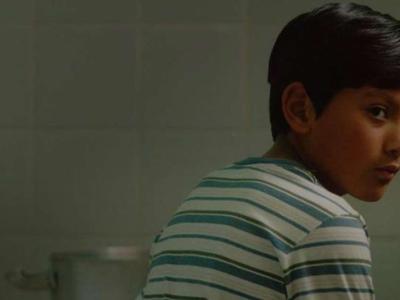After spending seven years outside of Brazil, I finally returned to my hometown, Cabo Frio, near Rio de Janeiro. Attentive to all novelties, I headed to the shopping centre expecting to find new and old brands. While looking for clothes and Havaiana flip-flops, I noticed a small box at the centre of the shopping centre full of customers. The advertisement immediately captured my attention. Images of different guns confirmed what I had heard: in Bolsonaro’s Brazil, guns are accessible to all.
Impressed by that discovery, I continue to wander about. As I look through the windows, I suddenly saw a man with a gun peering through the other side of the glass. It could be “just” another robbery in one of the most violent countries in the world. To my surprise, the man smiled with the gun in his hand as a lady took pictures of him. A child seemed to enjoy watching his father trying to shoot at a picture of a person pasted on the wall. At the entrance, I saw numerous types of weapons displayed for customers to choose. Terrified, I immediately looked at the sign: “Shooting club”.
I was gobsmacked. Seven years ago, I do not recall seeing a single shooting club in Brazil. It was unimaginable to come across such a club in a shopping centre, where children now go on a Sunday afternoon to admire their fathers shooting.
After talking to some friends, I discovered that this was just another day in Bolsonaro’s Brazil. This was no longer the only shooting club in my small town. In fact, I heard that pretty much every town in the neighborhood had a similar shooting booth. I already knew that gun ownership had rocketed in Brazil. Many of the newspapers I read in Europe talked about this. What I did not hear anyone talking about is how the shooting ranges proliferated. In Bolsonaro's Brazil, guns have transitioned from being an instrument of self-protection to a commodity like a mobile phone.
Evidently, after my observation on the ground, I checked the numbers and was even more surprised. Since the beginning of the Bolsonaro government, on average, there is almost one shooting range being opened per day across Brazil. According to the Brazilian army, in May 2022, there were 2061 shooting clubs in Brazil, of which 1006 opened during the Bolsonarista government. Once in power, Bolsonaro started to sign decrees to facilitate the buying of guns. Then, those people who bought such kinds of weapons began to seek places to “practise”. Thus, shooting ranges spread throughout the country.
At the beginning of 2022, deputy Alexandre Frota proposed a law that would prohibit under-18s from attending shooting clubs. At the time of writing this text, the proposed law is awaiting an opinion from the congressional Sports Commission. There is currently no legislation in Brazil that prohibits children from entering shooting clubs. A similar approach is practised in many US states, where children can watch their fathers play with guns. If in the US, the usage of gunfire contributes to an increase in homicide rates; in Brazil, the consequence of such a policy can be even more harmful.
Considered the father of studies for peace, Johan Galtung said that the culture of violence is the root of physical and structural violence. Shooting booths in shopping centres make gun violence seem as normal as shopping for a pair of shoes or a new phone. In the country with the highest absolute number of homicides in the world, there is already a tendency to normalise forms of violence. Furthermore, specialists have argued that the firearms used in shooting ranges can be stolen by criminal groups to enter the illegal market.
Apologists will say that shooting is an Olympic sport; that it is a sport like any other. In fact, like any other sport, competitive shooting can bring benefits such as concentration, discipline, and focus. Likewise, in the comments on the proposed law, many say that children should learn from an early age to use a weapon as a “form of defense”. For these people, going to a shooting club is the best way to practise their skills with a gun, which is arguably important for self-protection.
The great dilemma in Brazil is whether, in this case, the benefits of sport outweigh the harms of normalizing violence. It is necessary to find a balance between the practice of competitive sports and normalising the use of weapons. Moreover, the argument of self-defense intrinsically serves to hide the incapacity of the Brazilian State to guarantee the security of its own citizens. By assigning the duty of self-protection to the individual, the State downplays the need for a public security programme. Brazil urgently needs to promote a serious debate on these issues.















